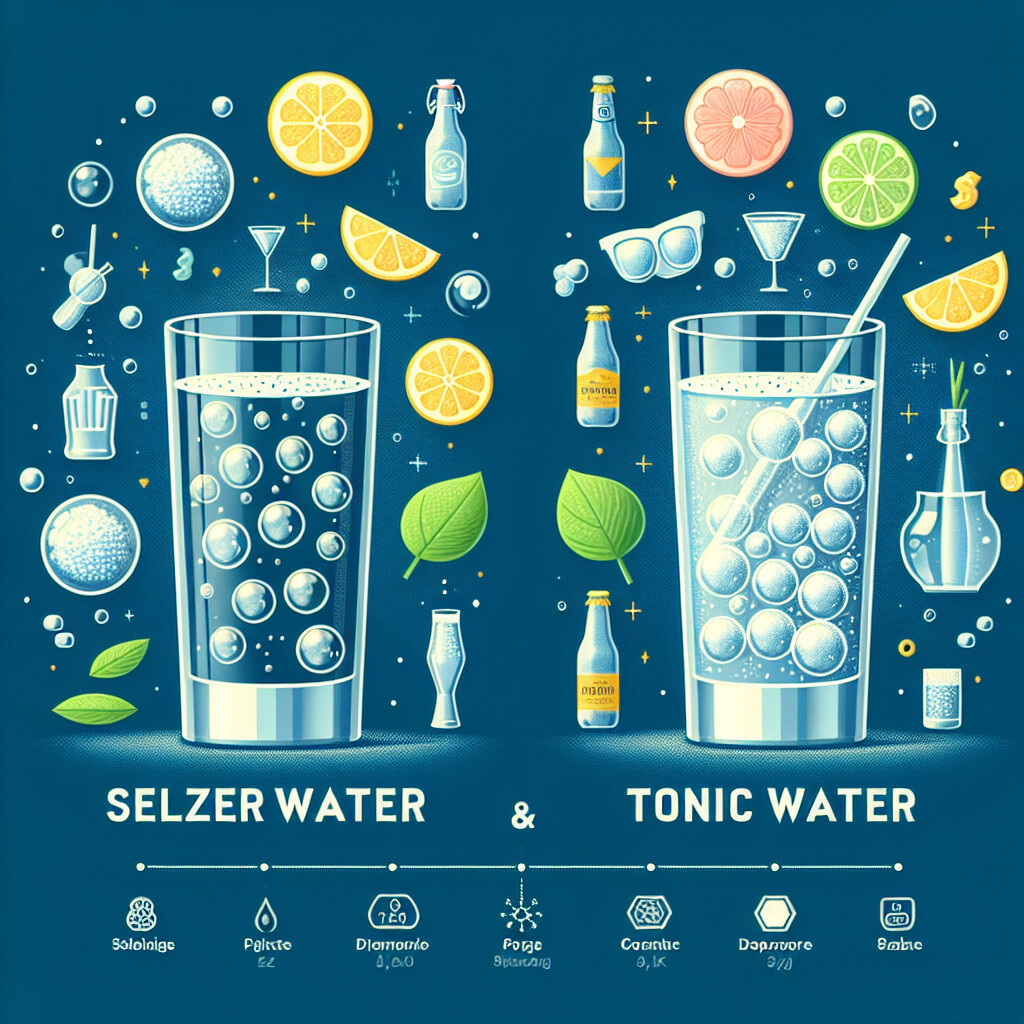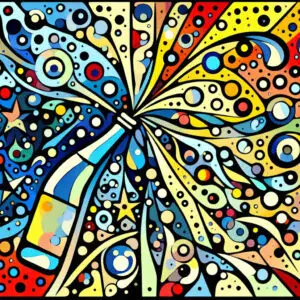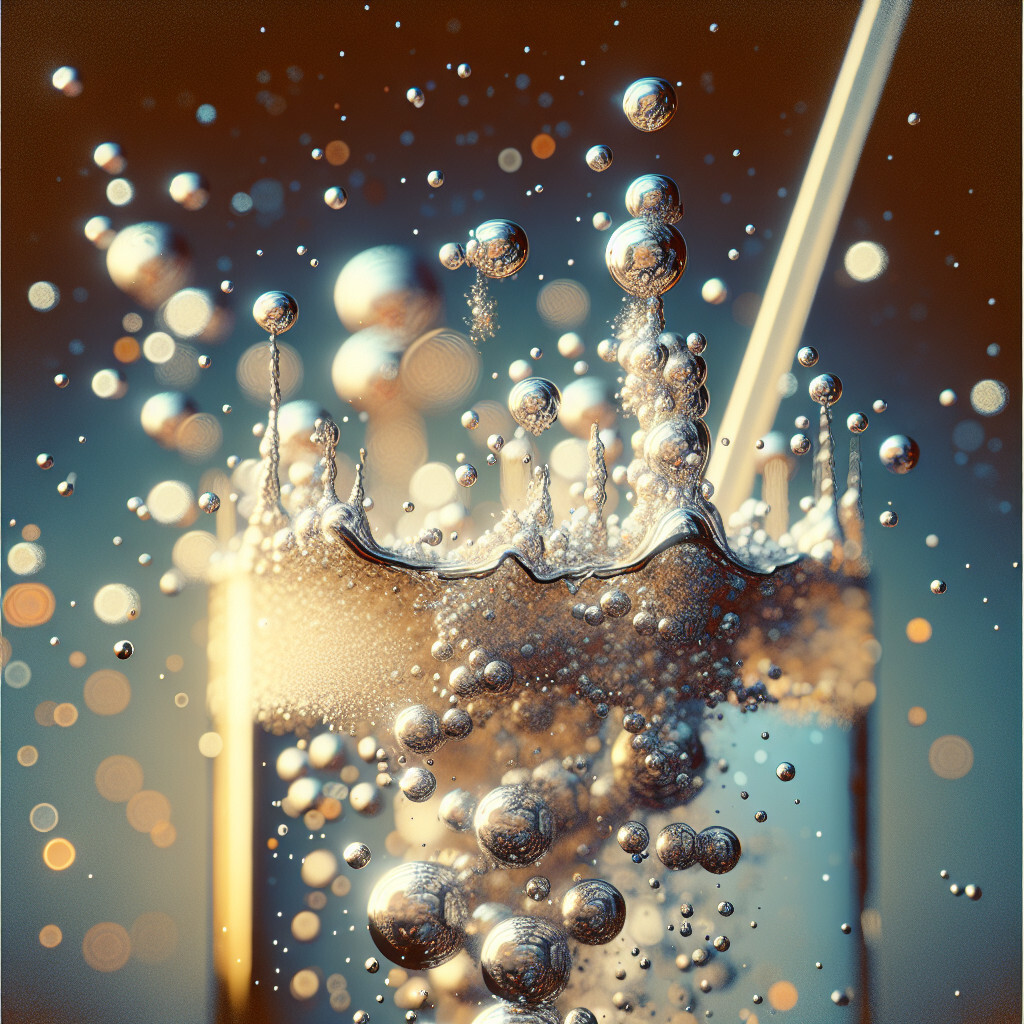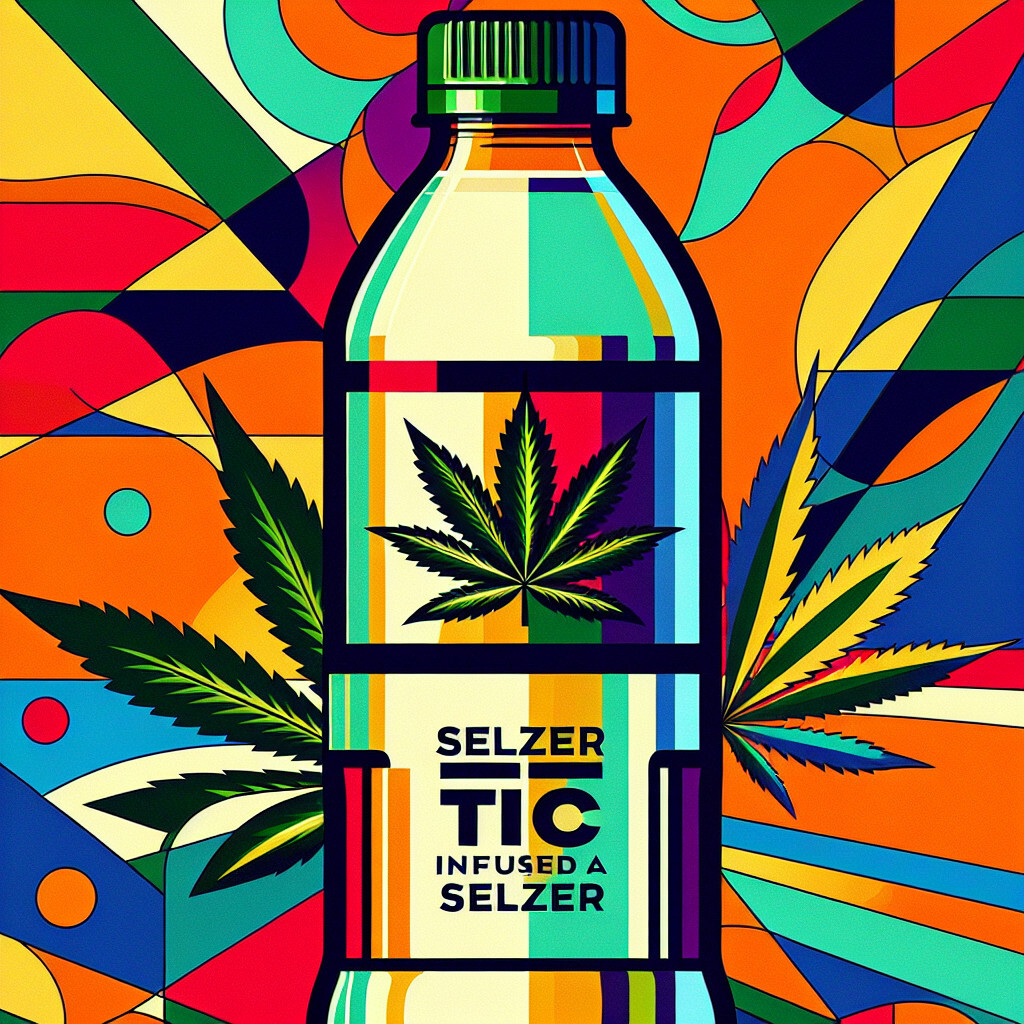-
Table of Contents
- Introduction
- Understanding the Key Differences Between Seltzer Water and Tonic Water
- Seltzer Water vs Tonic Water: Which is Better for Your Health?
- The Role of Seltzer Water and Tonic Water in Cocktail Making
- Taste Test: Comparing the Flavors of Seltzer Water and Tonic Water
- The Nutritional Breakdown: Seltzer Water Versus Tonic Water
- Q&A
- Conclusion
“Sparkling Simplicity vs Quinine Quirk: Unveiling the Differences between Seltzer and Tonic Water.”
Introduction
Seltzer water and tonic water are two types of carbonated beverages that are often used as mixers in cocktails and other drinks. The primary difference between them lies in their ingredients and flavor profiles. Seltzer water is essentially carbonated water, with no added flavors or sweeteners, making it a neutral and versatile mixer. On the other hand, tonic water contains quinine, a bitter compound originally used to treat malaria, and is often sweetened, resulting in a distinct bitter-sweet taste. It’s commonly used in cocktails like the classic gin and tonic. Therefore, while they may appear similar, seltzer water and tonic water offer different qualities and uses due to their unique compositions.
Understanding the Key Differences Between Seltzer Water and Tonic Water

Understanding the key differences between seltzer water and tonic water can be a bit confusing, especially when you’re standing in the beverage aisle trying to make a choice. Both are carbonated, both are often used as mixers in cocktails, and both have a certain level of popularity among consumers. However, they are not interchangeable and have distinct characteristics that set them apart.
Seltzer water, also known as sparkling water, is essentially water that has been carbonated. It’s a simple beverage, containing no added sugars or artificial flavors, although flavored versions are available. Seltzer water is a great choice for those who want a fizzy drink without the calories or sugar found in soda. It’s also a popular choice for cocktails, as it adds a bubbly texture without altering the flavor of the drink.
On the other hand, tonic water is a carbonated beverage that contains quinine, a compound originally used to treat malaria, and a significant amount of sugar. The quinine gives tonic water its characteristic bitter taste. Tonic water was originally used as a prophylactic against malaria, but today it’s more commonly used as a mixer in cocktails, particularly the classic gin and tonic. The bitter flavor of the tonic water complements the botanicals in the gin, creating a balanced and refreshing drink.
One of the main differences between seltzer water and tonic water is the taste. Seltzer water is essentially tasteless, while tonic water has a distinctly bitter flavor due to the quinine. This difference in taste means that they are used in different types of drinks. Seltzer water is often used in cocktails where you don’t want to add any additional flavors, while tonic water is used in drinks that can benefit from its bitter taste.
Another key difference is the sugar content. Seltzer water contains no sugar, making it a healthier choice for those watching their sugar intake. Tonic water, however, contains a similar amount of sugar to regular soda, making it a less healthy choice if consumed in large quantities.
In terms of nutritional content, seltzer water is the clear winner. It has no calories, no sugar, and no artificial flavors or sweeteners. Tonic water, on the other hand, contains around 124 calories per 12-ounce serving, as well as 32 grams of sugar. This is something to keep in mind if you’re watching your calorie or sugar intake.
In conclusion, while seltzer water and tonic water may seem similar at first glance, they are quite different. Seltzer water is a simple, carbonated water with no added flavors or sugars, making it a healthy and versatile choice. Tonic water, with its bitter flavor and high sugar content, is a specific choice used primarily as a mixer in certain cocktails. Understanding these differences can help you make an informed choice the next time you’re in the beverage aisle.
Seltzer Water vs Tonic Water: Which is Better for Your Health?
Seltzer water and tonic water are two popular choices for those who enjoy a fizzy, refreshing drink. While they may seem similar at first glance, there are significant differences between the two that can impact your health. Understanding these differences can help you make an informed decision about which is the better choice for you.
Seltzer water, also known as sparkling water, is essentially water that has been carbonated. It contains no added sugars, salts, or calories, making it a healthy alternative to sugary sodas. Many people enjoy seltzer water for its crisp, clean taste and the satisfying fizz that comes from the carbonation. It’s also versatile, serving as a base for a variety of beverages, from cocktails to homemade sodas.
On the other hand, tonic water is a carbonated soft drink that contains quinine, a compound originally used to treat malaria. Quinine gives tonic water its distinctive bitter taste. However, to counteract this bitterness, manufacturers often add sugar or high-fructose corn syrup to tonic water. As a result, a single serving of tonic water can contain as many calories and as much sugar as a can of soda.
While the quinine in tonic water is safe for most people in small amounts, it can cause side effects in some individuals, especially when consumed in large quantities. These can include ringing in the ears, nausea, and nervousness. Furthermore, the high sugar content in tonic water can contribute to weight gain and other health problems if consumed regularly.
So, when it comes to the question of which is better for your health, seltzer water or tonic water, the answer largely depends on your individual health goals and needs. If you’re looking to cut down on sugar and calories, seltzer water is the clear winner. It provides the same fizzy satisfaction as tonic water, without the added sugars and calories.
However, it’s also worth noting that while seltzer water is a healthier choice than tonic water, it’s still not as good for you as plain, still water. The carbonation in seltzer water can lead to bloating and gas in some people, and it can also be harmful to your teeth if consumed in large amounts due to its acidity.
In conclusion, while both seltzer water and tonic water can be enjoyed in moderation, seltzer water is generally the healthier choice due to its lack of added sugars and calories. However, as with any beverage, it’s important to consume it in moderation and as part of a balanced diet. And, of course, nothing beats the health benefits of regular, plain water. So, whether you prefer the crisp fizz of seltzer water or the bitter tang of tonic water, remember to enjoy these beverages responsibly and keep your health in mind.
The Role of Seltzer Water and Tonic Water in Cocktail Making
Seltzer water and tonic water are two popular mixers that play a significant role in cocktail making. Despite their similar appearances, they have distinct characteristics that contribute differently to the taste and overall experience of a cocktail. Understanding the differences between these two types of water can help you make more informed decisions when crafting your next cocktail.
Seltzer water, also known as sparkling water, is essentially water that has been carbonated. It is free of any added sugars or artificial flavors, making it a perfect choice for those who prefer a clean, crisp taste in their cocktails. The bubbles in seltzer water add a refreshing effervescence that can lighten up heavy or strong-flavored drinks. It’s a versatile mixer that can be used in a wide range of cocktails, from a simple vodka soda to a complex gin fizz.
On the other hand, tonic water is a carbonated soft drink that contains quinine, a compound originally used to treat malaria, and is often sweetened with sugar or high-fructose corn syrup. The quinine gives tonic water its signature bitter taste, which can add a unique twist to cocktails. Tonic water is most famously used in a classic gin and tonic, where the bitterness of the tonic beautifully balances the botanicals in the gin.
While both seltzer and tonic water can add a delightful fizz to your cocktails, their flavor profiles are vastly different. Seltzer water is neutral and will not alter the taste of your drink, making it an excellent choice for cocktails where you want the other ingredients to shine. In contrast, tonic water will introduce a bitter note to your cocktail, which can add complexity and depth to the flavor profile.
The sugar content is another key difference between seltzer and tonic water. Seltzer water contains no sugar, making it a healthier choice for those watching their sugar intake. Tonic water, however, can contain as much sugar as a regular soda, which can significantly increase the calorie count of your cocktail.
When it comes to cocktail making, the choice between seltzer and tonic water ultimately depends on the flavor profile you’re aiming for. If you’re crafting a cocktail with delicate flavors that you want to preserve, seltzer water would be your best bet. However, if you’re looking to add a touch of bitterness to balance out sweet or strong flavors, tonic water would be the way to go.
In conclusion, while seltzer water and tonic water may seem interchangeable at first glance, they each bring unique characteristics to the table. Seltzer water, with its neutral flavor and zero sugar content, offers a clean, crisp taste and a refreshing fizz. Tonic water, with its bitter flavor and higher sugar content, can add complexity and a sweet-bitter balance to your cocktails. Understanding these differences can help you elevate your cocktail making skills and create drinks that are perfectly tailored to your taste.
Taste Test: Comparing the Flavors of Seltzer Water and Tonic Water
Seltzer water and tonic water are two popular choices for those who enjoy a refreshing, bubbly beverage. While they may seem similar at first glance, there are distinct differences between the two, particularly when it comes to their flavor profiles. This article will delve into a taste test comparison of seltzer water and tonic water, highlighting the unique characteristics of each.
Seltzer water, also known as sparkling water, is essentially water that has been carbonated. It is often enjoyed on its own for its crisp, clean taste, or used as a mixer in cocktails due to its ability to add a fizzy element without altering the flavor of the drink. Seltzer water is typically devoid of any added flavors or sweeteners, making it a neutral and versatile choice. When you take a sip of seltzer water, you’ll notice a sharp, effervescent sensation that quickly dissipates, leaving a clean and refreshing aftertaste.
On the other hand, tonic water presents a more complex flavor profile. Originally used as a prophylactic against malaria, tonic water contains quinine, a compound extracted from the bark of the cinchona tree. Quinine lends tonic water its characteristic bitter taste. In addition to quinine, tonic water also contains sweeteners, which balance out the bitterness and give it a slightly sweet aftertaste. When you taste tonic water, the initial sweetness is quickly followed by a bitter tang, resulting in a flavor that is both intriguing and refreshing.
The carbonation level in both seltzer water and tonic water is similar, providing a pleasing fizziness that tickles the palate. However, the flavor journey they offer is quite different. Seltzer water provides a straightforward, clean taste, making it an excellent palate cleanser. It allows the flavors of any accompanying ingredients to shine through, making it a popular choice for mixed drinks.
Tonic water, with its unique blend of sweetness and bitterness, is more of a standalone beverage. The bitter quinine flavor can be an acquired taste for some, but it is this very characteristic that makes tonic water a perfect partner for certain spirits like gin. The bitterness of the tonic water complements the botanicals in the gin, creating a harmonious blend of flavors.
In conclusion, while seltzer water and tonic water may both offer a refreshing fizz, their flavors are distinctly different. Seltzer water is the more neutral of the two, offering a clean, crisp taste that makes it a versatile mixer. Tonic water, with its unique bitter-sweet profile, is more complex and can be enjoyed on its own or used to add depth to certain cocktails. Whether you prefer the straightforward simplicity of seltzer water or the intriguing complexity of tonic water, both have their own unique appeal and a place in your beverage repertoire.
The Nutritional Breakdown: Seltzer Water Versus Tonic Water
Seltzer water and tonic water are two popular choices for those who enjoy a fizzy, refreshing drink. While they may seem similar at first glance, there are significant differences between the two, particularly when it comes to their nutritional content. Understanding these differences can help you make an informed decision about which one to choose, depending on your dietary needs and preferences.
Seltzer water, also known as sparkling water, is essentially water that has been carbonated. This carbonation process involves the addition of pressurized carbon dioxide gas, which gives the water its characteristic fizz. Seltzer water is typically free of calories, sugars, and artificial sweeteners, making it a healthy choice for those who want to stay hydrated without consuming extra calories. It’s also a great option for those who are trying to cut back on sugary drinks, as it provides the same satisfying fizz without the added sugar.
On the other hand, tonic water is a carbonated soft drink that contains quinine, a compound originally used to treat malaria. Quinine gives tonic water its distinctive bitter taste, which can be an acquired taste for some. In addition to quinine, tonic water also contains sugar or high-fructose corn syrup, which significantly increases its calorie content. A typical serving of tonic water can contain around 124 calories and 32 grams of sugar, which is comparable to other sugary soft drinks.
While the quinine in tonic water does have some medicinal properties, the amount present in a typical serving is usually too small to have any significant health benefits. Moreover, the high sugar content of tonic water can contribute to weight gain and other health problems if consumed in excess. Therefore, while tonic water can be enjoyed in moderation as part of a balanced diet, it’s not the best choice for those who are watching their sugar intake or trying to lose weight.
Another key difference between seltzer water and tonic water is their taste. Seltzer water is essentially tasteless, although some brands may add natural flavors to enhance its appeal. This makes seltzer water a versatile choice that can be enjoyed on its own or used as a mixer in cocktails. Tonic water, with its distinctive bitter taste, is less versatile but can add a unique flavor profile to certain cocktails.
In conclusion, while both seltzer water and tonic water can quench your thirst and add a fizzy touch to your drinks, they differ significantly in their nutritional content. Seltzer water is a calorie-free, sugar-free option that’s ideal for those who are health-conscious or trying to cut back on sugar. Tonic water, with its added sugar and distinctive taste, can be enjoyed in moderation but may not be the best choice for those watching their calorie or sugar intake. By understanding these differences, you can make an informed decision about which one to choose based on your dietary needs and preferences.
Q&A
1. Question: What is the main difference between seltzer water and tonic water?
Answer: The main difference is that tonic water contains quinine and added sugar, which gives it a sweet and slightly bitter flavor, while seltzer water is just plain water with added carbonation.
2. Question: Is there a difference in calorie content between seltzer water and tonic water?
Answer: Yes, tonic water contains calories due to the added sugar, while seltzer water is calorie-free.
3. Question: Can you use seltzer water and tonic water interchangeably in drinks?
Answer: No, because tonic water has a distinct flavor due to the quinine and sugar, it can significantly alter the taste of a drink compared to seltzer water.
4. Question: Is there a difference in carbonation between seltzer water and tonic water?
Answer: Both seltzer water and tonic water are carbonated, but the level of carbonation can vary depending on the brand.
5. Question: Are there any health benefits or drawbacks to drinking seltzer water or tonic water?
Answer: Seltzer water is a good choice for those who want a fizzy drink without any added sugars or artificial flavors. However, tonic water contains quinine, which can cause side effects in some people, and the added sugar can contribute to weight gain and other health problems if consumed in excess.
Conclusion
In conclusion, the main differences between seltzer water and tonic water lie in their ingredients and uses. Seltzer water is simply water with added carbonation, making it a good choice for those who want a fizzy drink without any additional calories or sugars. On the other hand, tonic water contains quinine and added sugars, giving it a distinct bitter taste. It is often used as a mixer in cocktails. Therefore, while both are carbonated beverages, they differ significantly in taste, calorie content, and typical usage.











